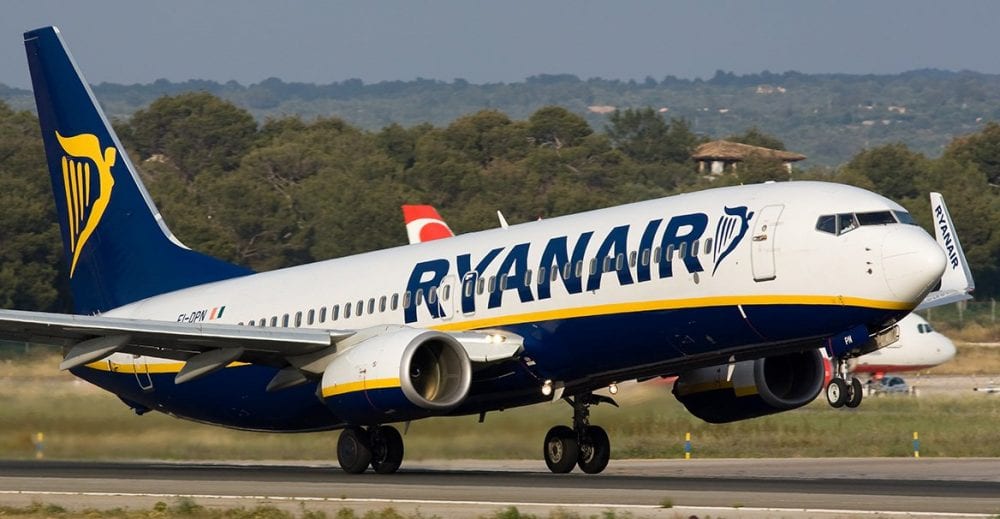LEADING budget airline Ryanair has recorded profits of €1 billion during the 2019 financial year.
This marks an increase of €117 million on 2018, according to newly revealed data recorded before the worst of the coronavirus pandemic.
More customers and 6% price hikes have helped the Dublin-based airline register a total profit of €1.002 billion before March 31 2020, compared to €885 million in 2018/19.
In total, 149 million people used the budget carrier during the previous financial year, each spending an average of €57 per person, representing a 4% gain on last year.
Ryanair’s changes in luggage allowances have also boosted the number of priority boarding upgrades, while allocated seat purchases have helped the no-frills travel giant net a cool €2.9 million in revenue.
Despite the seemingly positive figures, Ryanair bosses are cautious of the landscape post-COVID-19.
Experts estimate that the airline will loose almost €200 million in Q1 2020 due to travel restrictions and the grounding of nearly 99% of its fleet during the state of alarm.
Faced with monumental losses, Ryanair CEO Michael O’Leary is standing firm on his company’s handling of the situation, and has so far flatly refused any government hand-outs.
Governments have handed big bailouts ro Ryanair’s rivals, Finnair, Norwegian Air and TUI, as well as long-haul operators Lufthansa and Air France.
However O’Leary fears that these handouts will allow these firms to offer ‘below-cost’ flights once the pandemic has subsided, putting potentially lethal pressure on Ryanair’s monopoly on the low-cost air market.
“Air France and Lufthansa are subsidy junkies hoovering up state aid,” he said on BBC Radio 4’s Today programme.
However O’Leary’s stubbornness and refusal of aid has not eased the uncertainty among its 20,000 staff and crew.
Union leaders and Ryanair bosses remain locked in heated talks in a bid to avoid base closures, 20% pay cuts and the potential loss of over 3,000 jobs.
Pilots and cabin crew are currently in the firing line as the most vulnerable, due to the uncertainty of air traffic over the next few months.
Darrell Hughes, Human Resources Director at Ryanair has been vocally concerned that his company will have to make drastic changes to remain competitive, seemingly at the expense of its employees and crew.
“We are being forced to compete with flag airlines that have received more than €30 billion of illegal state aid from their governments meaning they will be able to sell low-cost tickets for several years,” he said.
Ryanair plans to return to 40% scheduled flying in July, but with no clear information on customer behaviour and how booking restrictions will affect customer confidence, the airline is already looking at ways to help offset the huge losses.
The 450 staff already laid off from its Dublin, London Stansted, Madrid and Wroclaw bases will not automatically be reinstated on July 1.
“Ryanair expects to make more announcements regarding reductions in personnel and salaries before the end of May,” added Hughes.










